22+ Sample Event Management Proposal Templates
-
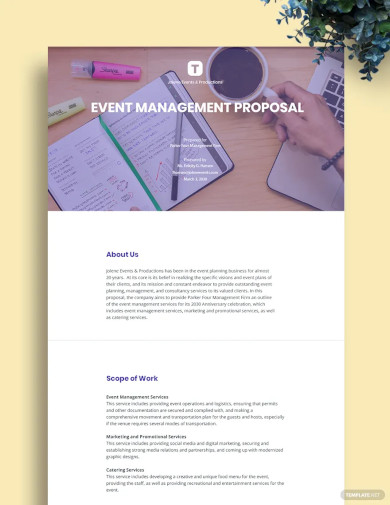
Event Management Proposal Template
download now -

Simple Event Management Proposal Template
download now -
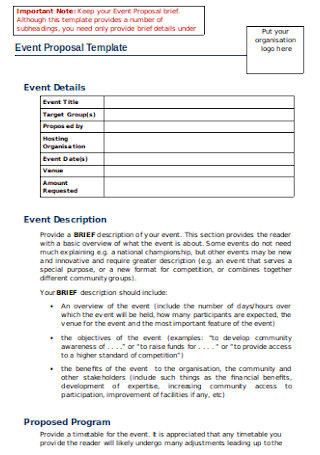
Event Proposal Template
download now -
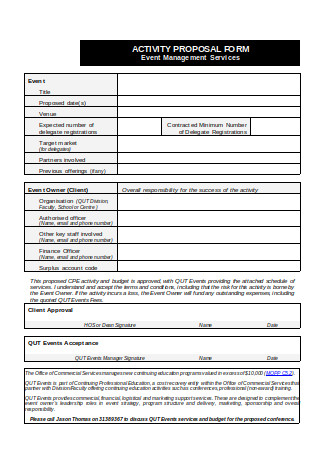
Event Management Proposal Form
download now -
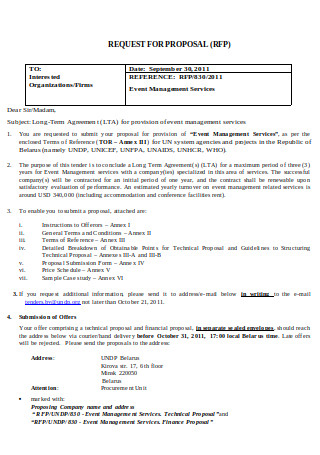
Request for Proposal
download now -
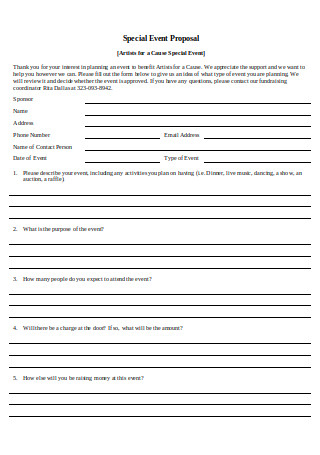
Special Event Proposal
download now -
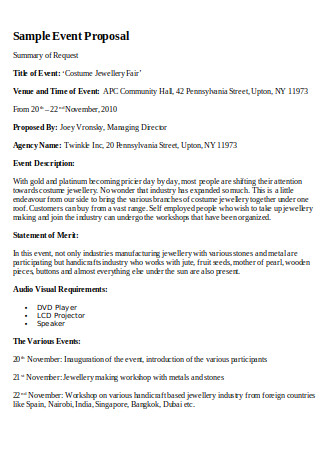
Sample Event Proposal
download now -
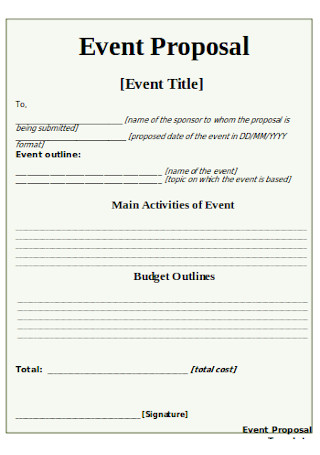
Editable Event Management Proposal
download now -
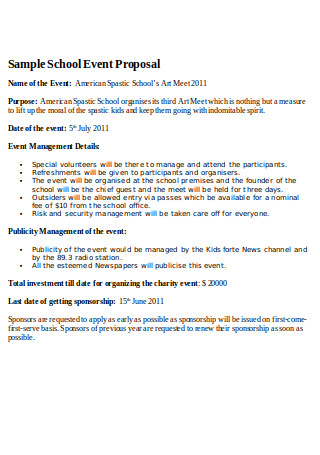
Sample School Event Proposal
download now -
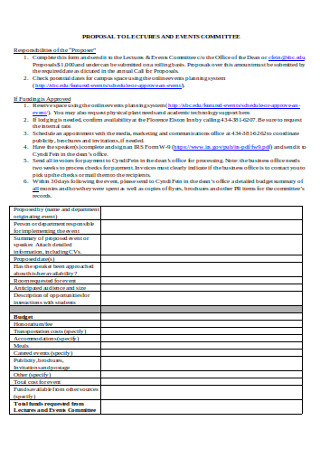
Proposal to Lectures and Event Committee
download now -
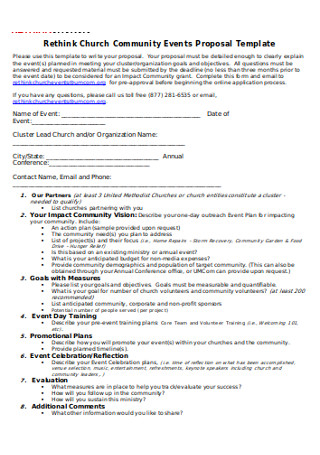
Church Community Events Proposal Template
download now -
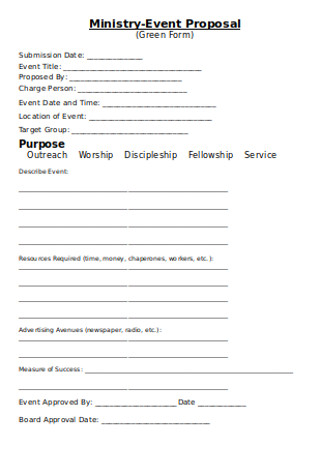
Ministry Event Proposal
download now -
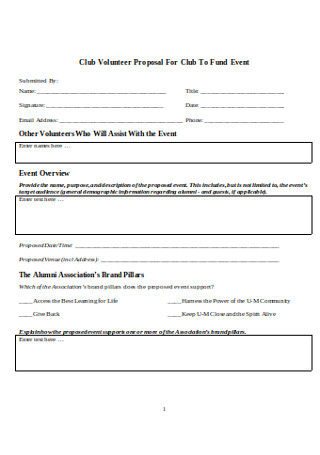
Club Volunteer Proposal For Club To Fund Event
download now -
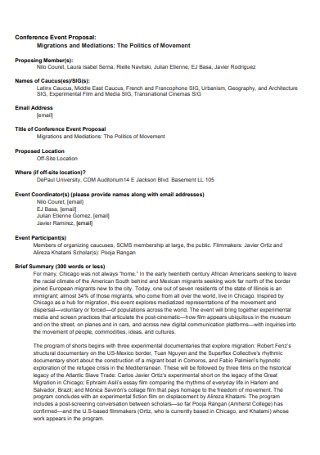
Conference Event Proposal
download now -
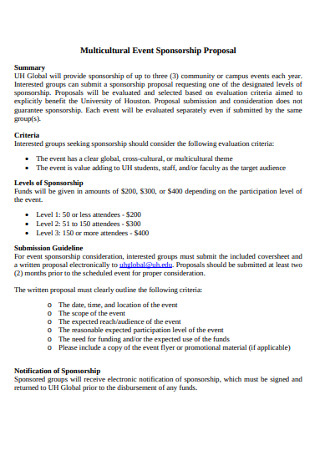
Multicultural Event Sponsorship Proposal
download now -

Sample Conference Event Proposal
download now -
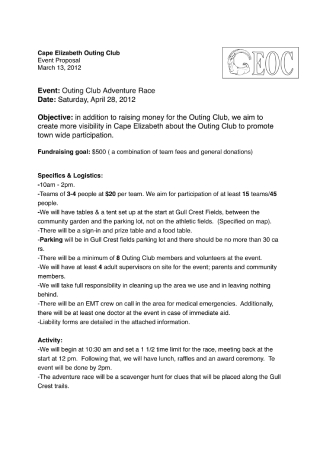
Adventure Race Event Proposal
download now -
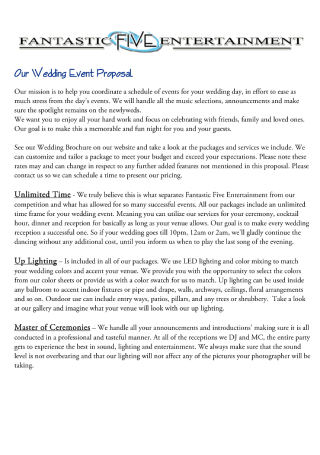
Sample Wedding Event Proposal
download now -
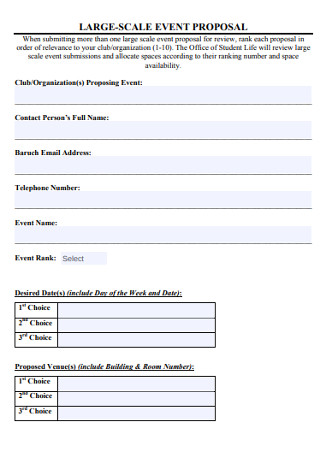
Large Scale Event Proposal
download now -

Asian Culture Festival Proposal
download now -
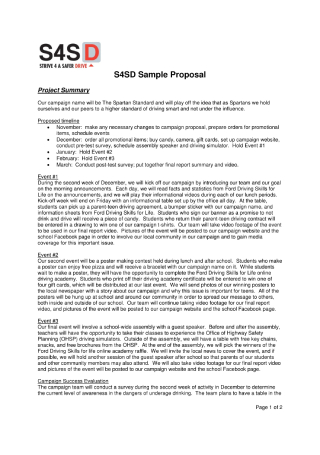
Campaign Event Proposal
download now -
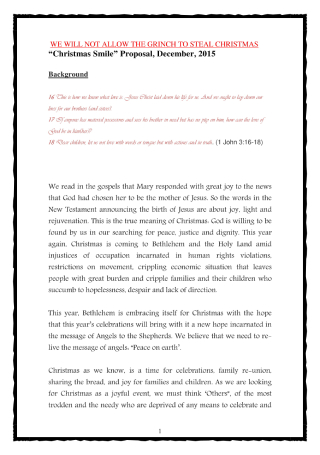
Christmas Event Management Proposal
download now -
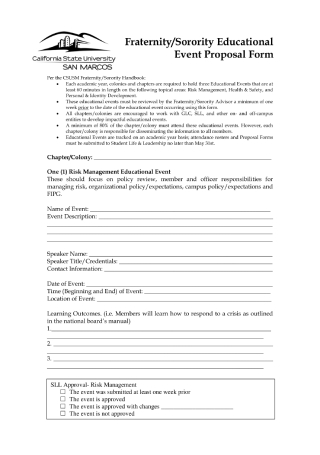
Educational Event Proposal Form
download now
FREE Event Management Proposal s to Download
22+ Sample Event Management Proposal Templates
What Is an Event Management Proposal?
Handling Occasions: The Five Processes in Event Management
The Celebrations: Three Event Categories Everyone Should Know
How to Make a Professional Event Management Proposal
FAQs
What are some examples of major events I should know about?
Can I send my proposal through emails?
Should I put up a social media account for my event management business?
How should I negotiate with a third party partnership?
What Is an Event Management Proposal?
Everyone celebrates little and simple things. From completing a difficult puzzle exercise to learning how to bake muffins, people have reasons to revel on achievements. Before the concept of nightclub events and pool parties, human beings have been observing the practices of commemorating significant occasions. In ancient Egypt, citizens hosted various feasts and festivals to pay homage to their gods. And even in modern times, countries still continue the practice of commemorating special days for heavenly beings. During large gatherings—not limited to religious events—for particular functions, some people hire the assistance of event planners to organize the celebration.
The event organizer has the responsibility of providing a structure and schedule for the occasion, as requested by the client. To be hired, organizers present the event management proposal to the prospective client to lay out the plans for the project. An event management plans proposal contains the essential details of the service provider, as well as qualifications and experience in the field. Moreover, the document also holds potential plans that might be suitable for the celebration. Every proposal differs along with the preferences of business owners.
Handling Occasions: The Five Processes in Event Management
The success of any event centers on two things: one, the reception, and the reaction of the audience. And two, the opinion and response of the clients. Nowadays, event handlers utilize social media to broadcast impending events or finished celebrations. Before, these professionals posted articles in newspapers and magazines to capture the attention of the public. Recently, planners are using both ways to reach audiences. According to a report published by Eventbrite in 2019, over 96% of event planning experts have plans to stream live videos of their events in various sites. With this effort, viewers can send word about the celebration (tweet about it) and even purchase tickets. Aside from that, folks who are staying at home can still enjoy the occasion. So, what are the five steps in event management for up and coming organizers?
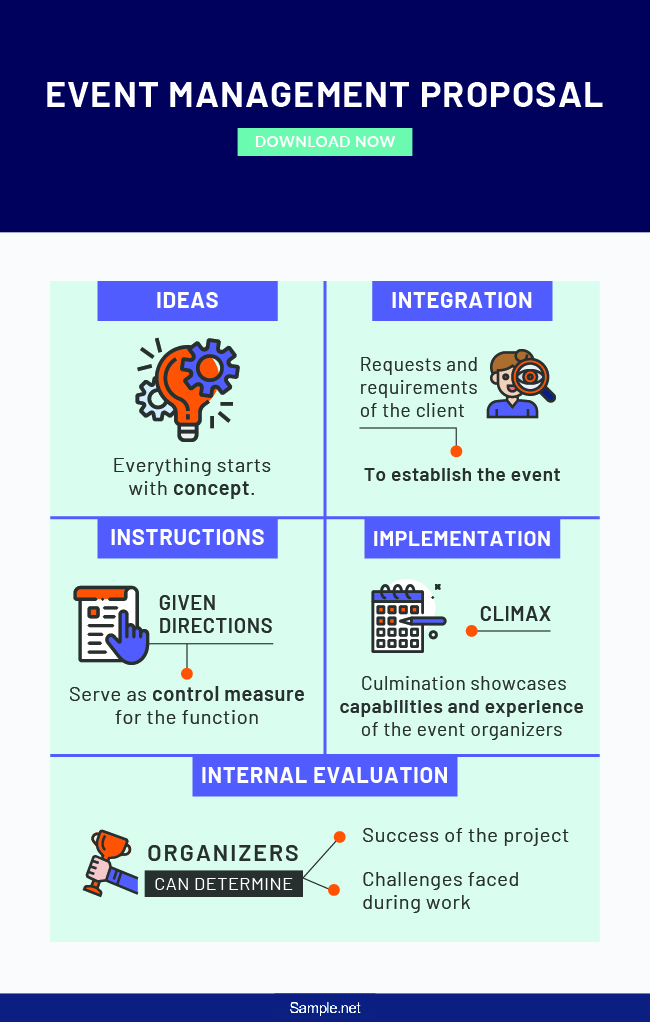
The Celebrations: Three Event Categories Everyone Should Know
Every person on the planet celebrates at least three festivities in a year—birthdays, a national holiday, and a special day. Now, there are different types of events happening all year round, but it has three categories. Before going there, readers should understand the event planning industry. According to the Bureau of Labor Statistics, the occupational outlook of event planners has an expectation of growth for the next decade (2018-2028). As many companies and individuals are looking for ways to expand and rejuvenate event experience, they turn to event organizers to do the work. The report added a 7% increase in the number of employees in the following years. So, what are the three event categories?
Private Events
When it comes to private events, the focus stays on private citizens and their personal celebrations with family members and friends. The celebrants enjoy the warmth of peers, as well as the comfort of backyard parties and picnics in parks. Private events stay away from the limelight unless pictures are on social media accounts. Excellent illustrations of private occasions are weddings, birthdays, anniversaries, and private parties to honor someone or something.
Corporate Events
Unlike the previous one, corporate events are for endorsements or launches of company products and brands. The occasion serves as a way for business owners to connect with other entrepreneurs to form alliances and confirm projects. On the other hand, some other corporate events concentrate on building work relationships among employees in the firm. Some examples of corporate events are seminars, conferences, business lunches (or dinners), and Christmas parties.
Charity Events
On this occasion, the purpose centers on raising funds for particular charitable acts and projects. During the event, the guests sponsor the plan through monetary donations. Furthermore, different performances take place to entertain the crowd. Charity events have renowned guests from different walks of life. In many cases, these events help fund non-profit organizations with missions to save young kids, the environment, or other countries.
How to Make a Professional Event Management Proposal
For business owners running an event management company, finding clients can take time. Some enterprises have other priorities rather than hiring another for an event. But when opportunities knock at the door of event planning agencies, taking the chance can modify the situation. So, the company has to prepare the right tool for the job. Here are the five steps in creating the event management proposal.
Step 1: Provide an In-depth Analysis of the Upcoming Event
When making the proposal, begin with an analysis of the celebration. Will it be a dinner party for a debut? Who will be the esteemed guests? Does the occasion have a special role in the lives of the clients? By answering some of these inquiries, you will understand the importance of this event to the customers. With that, you can create a proposal plan that fits with the requirements of the clients.
Step 2: Discuss Possible Plans
After showing the analysis, you should start discussing the plans you have for the upcoming event. These proposed ideas require the approval of the clients, so you have to listen and make notes on the changes. Every listed plan must be connected to the event and should show relevance to thematic approaches set by the client.
Step 3: List Down the Offered Services
As an event management proposal, the document must highlight the services offered by the company, which is in line with the needs of the client. For instance, the event management proposal showcases its organizing technique by presenting successful and finished projects. You can also include the willingness of the event company to cater to the necessities of the client if they are willing to choose the event planning agency. If the company has specializations, then it should be on the document too.
Step 4: Include Budget and Estimation Prices
Next, you have to indicate the estimation and budget plan for the event. The presented amount based on the rundown of activities in the event is tentative and open to changes. However, presenting the said prices matters to the client. From here, the other party decides on some processes of the celebration.
Step 5: Listen for Feedback
Getting feedback becomes an opportunity for growth. In this case, acquiring feedback improves the overall view of the event. The preferences of the clients should be the primary concern of the planners. Hence, listening to feedback helps everyone involved in the project. If you have questions, you can always consult the client for clarification.
FAQs
What are some examples of major events I should know about?
Entrepreneurs running an event management business should be knowledgeable about significant events happening throughout the whole year. Some examples include Easter, Christmas, Valentines, Halloween, and Summer parties. At times, the founding anniversary of a company can be a major event too. Product launches, promotional shows, and exhibits are also part of the list. Event planning companies should know when to approach other enterprises.
Can I send my proposal through emails?
With the Internet at hand, communication between companies and clients is more comfortable. The two parties can negotiate on the plans for the project and make changes when necessary. Moreover, they can immediately send proposals through this medium. According to Eventbrite, roughly 91% of the population spend sufficient time to check personal emails every day. Although having a traditional approach also counts, some people would save time by sending the proposal beforehand.
Should I put up a social media account for my event management business?
Social media has become one of the most effective tools in communicating with different individuals. By using this platform, you can reach more people and interact with potential customers. Hence, creating a social media account will have an impact on the visibility of the business. Additionally, you have the option of making two to three accounts to showcase the works of the company.
How should I negotiate with a third party partnership?
Many organizers hire third party companies for specific job descriptions. For instance, the committee employs the services of a host for the occasion. In another case, the organizer chooses a catering service to set up the menu and meals. For the partnership, the other party would send a vendor proposal to negotiate terms and conditions.
Overseeing and controlling the different aspects of an event can be time-consuming and stressful for some people—even when they are eager to participate. In addition to tight and ever-changing schedules, these individuals have little time left in completing tasks focused on celebrating achievements and anniversaries. Instead of doing it themselves, these people can rely on the professionals to do the work. With that, event management plays an important role in handling upcoming occasions for these clients. Together with the right proposal plan and team effort, everything will go according to the preference of the client.
